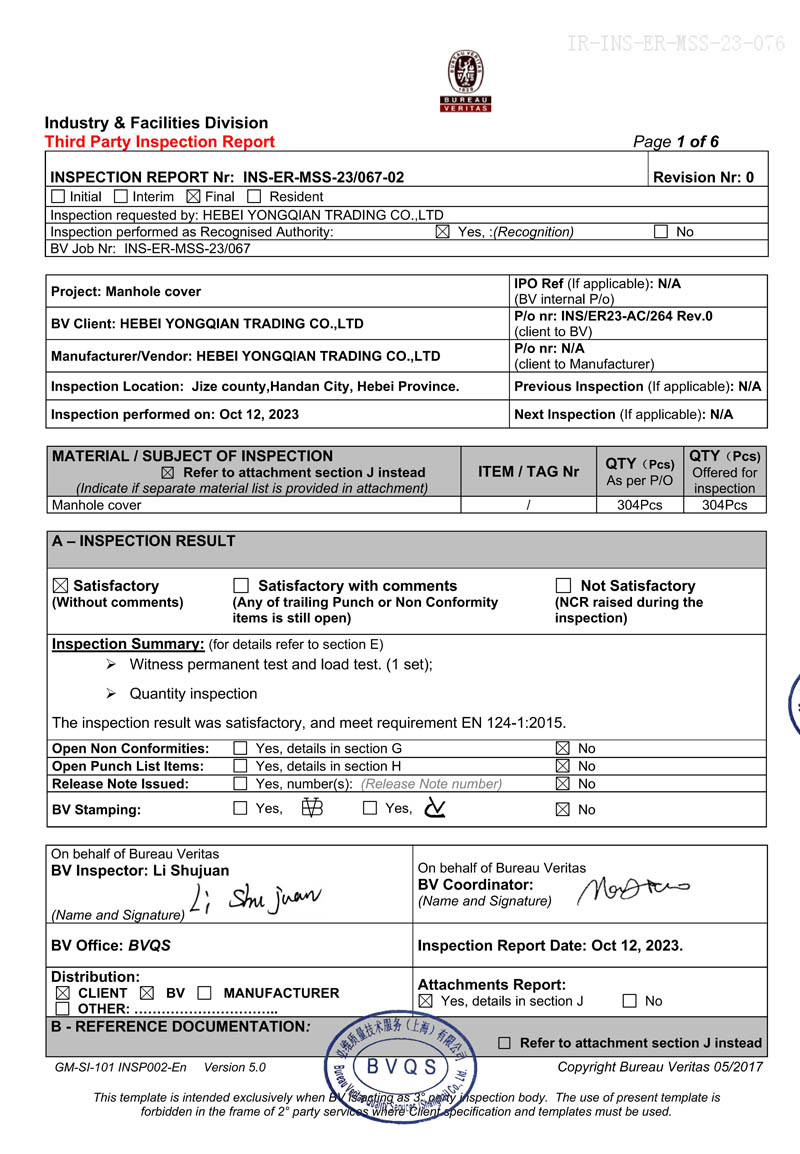Brass Gate Valve for Efficient Fluid Control and Durable Performance
Understanding Brass Gate Valves A Comprehensive Overview
Brass gate valves are essential components in various industrial and residential applications, serving the critical function of controlling the flow of liquids and gases through piping systems. Their design and functionality make them a popular choice among engineers and contractors alike. This article delves into the specifics of brass gate valves, exploring their construction, advantages, applications, and maintenance.
Construction and Design
Brass gate valves are primarily made of brass, an alloy of copper and zinc, known for its excellent corrosion resistance and strength. The typical design of a gate valve includes a circular disc, or gate, which moves up and down within the valve body. When the gate is lifted, the flow path through the valve is unobstructed, allowing for maximum flow. Conversely, lowering the gate blocks the flow completely.
These valves can be operated manually via a handwheel or automatically through actuators in more sophisticated industrial systems. The threaded or flanged connections enable easy installation within pipe systems. Due to their robust construction, brass gate valves can withstand high pressures and temperatures, making them suitable for different applications.
Advantages of Brass Gate Valves
One of the primary advantages of brass gate valves is their ability to provide a tight seal. When fully closed, they prevent any leakage, making them ideal for applications where containment is critical. Moreover, the minimal pressure drop across the valve allows for smooth fluid flow, enhancing the efficiency of the system.
Brass valves offer excellent resistance to corrosion, particularly in applications involving water or other corrosive substances. This resistance extends the lifespan of the valve and reduces the need for frequent replacements. Additionally, brass is an excellent conductor of heat, making these valves ideal for high-temperature applications.
Another notable benefit is the ease of operation. The design allows for quick opening and closing with a simple turn of the handwheel. This accessibility ensures that users can manage the flow of fluids efficiently and safely.
brass gate valve

Common Applications
Brass gate valves are widely used across various industries, including water supply, oil and gas, HVAC systems, and chemical processing. In municipal water systems, they control the flow within pipelines, enabling maintenance and isolation of sections without shutting down the entire network. In industrial settings, they are often found in heating and cooling systems, where they regulate fluid movement in an effective manner.
In the oil and gas sector, brass gate valves manage the flow of crude oil and natural gas, ensuring safe transport and processing. Their reliable sealing capabilities make them essential in preventing leaks that could lead to environmental hazards or operational disruptions.
Maintenance and Care
To ensure optimal performance, regular maintenance of brass gate valves is recommended. This includes inspecting for signs of wear or corrosion, checking the sealing surfaces, and ensuring that the operating mechanism is free of obstructions. Lubricating moving parts can enhance the valve's functionality and longevity.
If the valve shows signs of damage or wear, it may require repair or replacement. Proper installation and adherence to manufacturers' guidelines are crucial in preventing issues that may compromise the valve's integrity.
Conclusion
Brass gate valves are a fundamental part of many fluid control systems, offering durability, efficiency, and reliability. Their ability to provide a strong seal and withstand various operating conditions makes them a preferred choice in many industries. Understanding the features and best practices for maintenance can help ensure these valves continue to perform effectively, contributing to the overall reliability of piping systems. As technology advances, the design and application of brass gate valves will likely continue to evolve, solidifying their role in modern engineering and plumbing solutions.
-
The Smarter Choice for Pedestrian AreasNewsJun.30,2025
-
The Gold Standard in Round Drain CoversNewsJun.30,2025
-
The Gold Standard in Manhole Cover SystemsNewsJun.30,2025
-
Superior Drainage Solutions with Premium Gully GratesNewsJun.30,2025
-
Superior Drainage Solutions for Global InfrastructureNewsJun.30,2025
-
Square Manhole Solutions for Modern InfrastructureNewsJun.30,2025
-
Premium Manhole Covers for Modern InfrastructureNewsJun.30,2025
